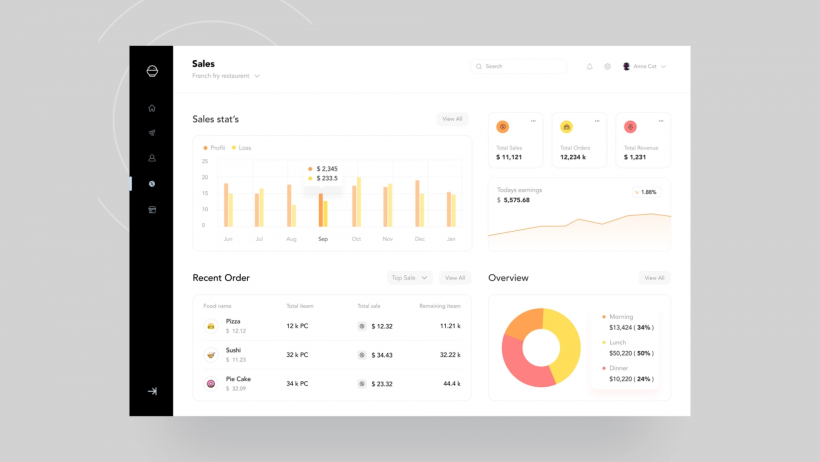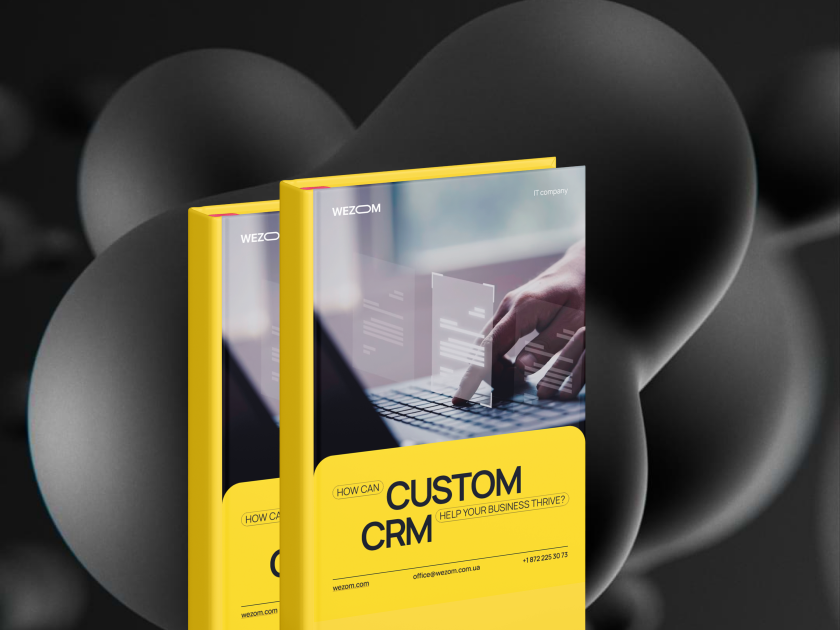
CRM: The Secret Ingredient for Meal Delivery Business Success
In today’s fast-paced world, meal delivery businesses have exploded in popularity, offering convenience and a wide variety of cuisines right to consumers’ doorsteps. However, with increasing competition, it’s no longer enough to just provide good food; businesses need to focus on building strong customer relationships to thrive. This is where Customer Relationship Management (CRM) systems come into play.
What is CRM and Why is it Important for Meal Delivery Businesses?
CRM is a technology that helps businesses manage and analyze customer interactions and data throughout the customer lifecycle. The goal is to improve business relationships, assist in customer retention, and drive sales growth. For meal delivery businesses, CRM can be a game-changer, offering a centralized platform to:
- Understand Your Customers: Collect and analyze data on customer preferences, ordering history, dietary restrictions, and feedback.
- Personalize the Customer Experience: Tailor menus, promotions, and communications to individual customer needs.
- Streamline Operations: Automate tasks like order processing, delivery scheduling, and customer support.
- Improve Customer Retention: Proactively address customer issues, reward loyalty, and encourage repeat orders.
- Increase Sales: Identify opportunities for upselling, cross-selling, and targeted marketing campaigns.
Key CRM Features for Meal Delivery Businesses
When choosing a CRM for your meal delivery business, consider these essential features:
-
Customer Database: A centralized repository for storing customer information, including contact details, order history, dietary preferences, feedback, and loyalty program status.
-
Order Management: Seamless integration with your ordering platform to track orders from placement to delivery, manage order modifications, and handle cancellations.
-
Delivery Management: Tools for scheduling deliveries, optimizing routes, assigning drivers, and tracking delivery progress in real-time. Integration with GPS and mapping services is crucial.
-
Menu Management: Ability to manage your menu offerings, update pricing, add or remove items, and track ingredient inventory. Integration with your kitchen management system is beneficial.
-
Marketing Automation: Features for creating and automating email marketing campaigns, SMS promotions, and loyalty programs. Target specific customer segments based on their preferences and behavior.
-
Customer Support: Tools for managing customer inquiries, resolving complaints, and providing timely support through various channels (e.g., phone, email, chat).
-
Reporting and Analytics: Comprehensive dashboards and reports to track key performance indicators (KPIs) such as customer acquisition cost, customer lifetime value, order frequency, and customer satisfaction.
-
Mobile Accessibility: A mobile app for drivers to manage deliveries, update order status, and communicate with customers and dispatchers on the go.
-
Integration Capabilities: Ability to integrate with other essential business systems such as accounting software, payment gateways, and social media platforms.
Benefits of Using CRM in Meal Delivery
Implementing a CRM system can bring numerous benefits to meal delivery businesses:
-
Enhanced Customer Experience: CRM enables businesses to personalize interactions, anticipate customer needs, and provide proactive support, leading to a more satisfying experience.
-
Increased Customer Loyalty: By rewarding loyal customers, addressing their concerns promptly, and providing personalized offers, CRM helps foster long-term relationships and reduce churn.
-
Improved Operational Efficiency: Automating tasks like order processing, delivery scheduling, and customer support frees up staff to focus on more strategic activities.
-
Data-Driven Decision Making: CRM provides valuable insights into customer behavior, market trends, and business performance, enabling informed decision-making.
-
Targeted Marketing Campaigns: CRM allows businesses to segment their customer base and create targeted marketing campaigns that are more likely to resonate with specific groups.
-
Increased Sales and Revenue: By improving customer retention, driving repeat orders, and identifying upselling opportunities, CRM can significantly boost sales and revenue.
Choosing the Right CRM for Your Business
Selecting the right CRM for your meal delivery business requires careful consideration of your specific needs, budget, and technical capabilities. Here are some factors to keep in mind:
-
Business Size and Complexity: Choose a CRM that is scalable and can accommodate your current and future business needs.
-
Industry-Specific Features: Look for a CRM that offers features specifically designed for meal delivery businesses, such as order management, delivery scheduling, and menu management.
-
Integration Capabilities: Ensure that the CRM can integrate seamlessly with your existing business systems.
-
Ease of Use: Choose a CRM that is user-friendly and easy to learn, so your staff can quickly adopt it.
-
Pricing and Support: Compare pricing plans and consider the level of customer support offered by the CRM vendor.
Popular CRM Solutions for Meal Delivery
Several CRM solutions cater to the needs of meal delivery businesses. Some popular options include:
- HubSpot CRM: A free CRM with powerful features for marketing, sales, and customer service.
- Salesforce Sales Cloud: A comprehensive CRM platform with advanced features for sales automation and customer management.
- Zoho CRM: A versatile CRM solution with a wide range of features and integrations.
- Freshsales Suite: A sales-focused CRM with built-in features for lead generation and deal management.
- monday.com: While not a traditional CRM, monday.com offers customizable project and workflow management capabilities that can be adapted for CRM purposes.
Tips for Successful CRM Implementation
Implementing a CRM system is not a one-time event; it’s an ongoing process that requires careful planning and execution. Here are some tips for successful CRM implementation:
- Define Clear Goals and Objectives: Determine what you want to achieve with CRM and set measurable goals.
- Involve Key Stakeholders: Get input from all departments that will be using the CRM, including sales, marketing, customer service, and operations.
- Choose the Right CRM: Select a CRM that aligns with your business needs and budget.
- Train Your Staff: Provide comprehensive training to your staff on how to use the CRM effectively.
- Customize the CRM: Tailor the CRM to your specific business processes and workflows.
- Monitor and Evaluate: Track your progress and make adjustments as needed to ensure that you are meeting your goals.
Conclusion
In the competitive world of meal delivery, CRM is no longer a luxury but a necessity. By leveraging CRM technology, businesses can gain a deeper understanding of their customers, personalize the customer experience, streamline operations, and drive sales growth. With the right CRM system and a well-executed implementation plan, meal delivery businesses can build strong customer relationships, increase loyalty, and achieve long-term success. The key is to view CRM not just as a software solution, but as a strategic approach to putting the customer at the heart of your business. It’s the secret ingredient to lasting success in the dynamic meal delivery landscape.

